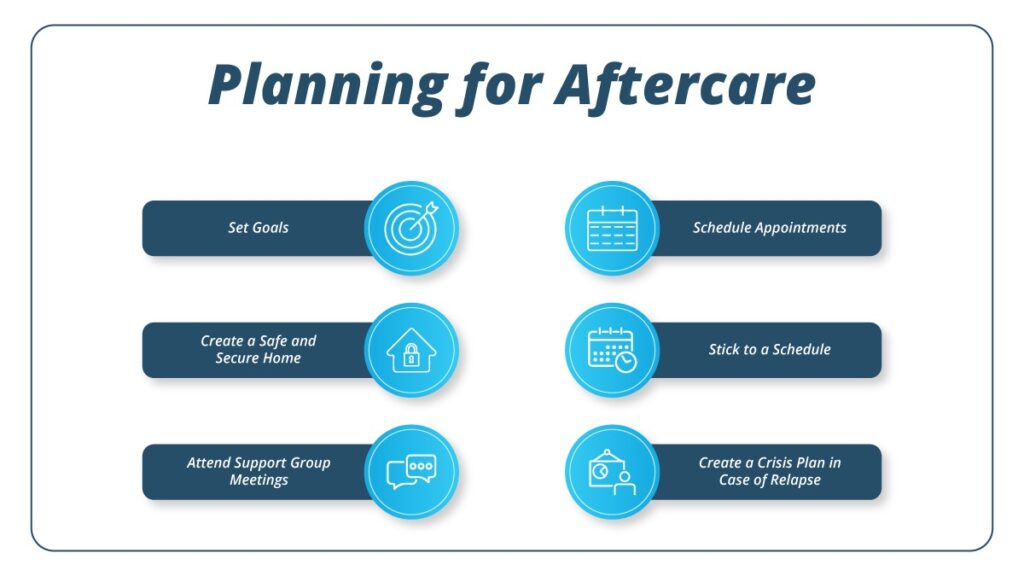With advances in technology and techniques, many patients can switch from inpatient to outpatient treatment. This transition requires thorough planning, including arranging follow-up appointments and home care services, if necessary.
Moreover, patients and their families must understand their roles in maintaining and managing the patient’s health after discharge. This transition can seem daunting.
However, the right approach can lead to better patient outcomes, more convenience, and potentially lower healthcare costs. As we delve into this topic, we’ll discuss the steps involved in making this transition smoothly and effectively.

Key Takeaways
The healthcare landscape is transforming. There’s a shift from receiving extended medical treatment in a hospital setting to receiving care at home.
- Transitioning from inpatient to outpatient care is a recovery milestone.
- Creating an effective aftercare plan with your doctor helps prevent relapse.
- Outpatient care can be more cost-effective than inpatient care.
The Haven Detox-Little Rock is ready to support you in this journey. Call us at (501) 271-3342 to get services tailored to your unique needs.
What is Outpatient Care?
Outpatient care is when you get health services but do not stay in a hospital overnight. You might visit a doctor’s office, clinic, or even a part of a hospital called an “outpatient department.” You might get tests, treatments, or minor surgeries and then go home to recover on your own.
Outpatient care is becoming more common because of advancements in medical technology. Many procedures that once needed an overnight stay can now happen in less time, which is good news for patients, who often find recovering at home more comfortable and convenient.
Moreover, outpatient care is usually less expensive than inpatient care, meaning lower healthcare costs. So, this shift towards outpatient care is a win for the health system and patients, offering high-quality care in a more efficient and comfortable setting.
Importance of Outpatient Care
Moving to outpatient care means your condition is stable enough to no longer require constant supervision. That means you are able to live independently and care for yourself more than before.
But does moving to outpatient care mean you’re cured? Not necessarily. Outpatient care is part of your overall treatment plan. It’s designed to help manage your condition but doesn’t necessarily mean it is completely gone.
Outpatient care allows doctors to monitor your condition through appointments, allowing you to live your life and attend to responsibilities outside of treatment.
Creating an Aftercare Plan With Your Doctors
You will create a plan with your doctors to ensure you’re well taken care of after leaving the hospital.
In this process, your doctors will look at your overall health and the specific condition you’re dealing with. They will then decide on the best treatments or therapies for you to continue at home or outpatient facilities.
The aftercare plan will also include details about any medications you need to take, physical activities you should do or avoid, and any dietary changes you should make.
Remember to ask your doctors any questions you may have during this process. It may help to write down your questions before your appointments. Aftercare planning is a team effort, and your input is valuable. By working together, you can create a plan to help you heal and stay healthy.
Set Goals
Set clear, realistic health goals to guide your care. Your doctors will advise you, but remember; these are your goals. Your goals may include managing pain, improving thought patterns, or reducing cravings. Clear objectives give you something to aim for and help you track your progress.
Schedule Appointments
Part of your aftercare plan will involve scheduling regular appointments with your doctor. These check-ins allow your doctor to monitor your progress and make any vital adjustments to your treatment plan. Regular meetings will enable you to ask questions or express concerns about your health.
Create a Safe and Secure Home
A crucial part of outpatient care is ensuring your home environment is safe and supportive of recovery. This may involve making sure the house is full of healthy snacks, has access to exercise equipment, or is full of supportive friends and family. What your safe and supportive home will look like will change based on your condition.
Stick to a Schedule
Having a consistent routine can be beneficial. It provides structure and can help you remember important tasks, like taking medication or doing physical therapy exercises. Your schedule should be flexible enough to accommodate good days and bad days.
Form a Medication Management Plan
Medication is often a crucial part of outpatient procedures. Understanding how to take your medication correctly, what side effects to watch for, and what you can do if you miss a dose is essential. Your doctor or pharmacist can help create a medication management plan to ensure you’re using your medication safely and effectively.
Attend Support Group Meetings
Support groups can be a great source of comfort and motivation. They give you a chance to connect with others who are facing similar challenges. Sharing experiences and advice can benefit your emotional well-being during your recovery.
Create a Crisis Plan in Case of Relapse
Despite your best efforts, there may be bumps along the road to recovery. A crisis plan outlines steps to take if your health worsens suddenly. It might include emergency contact numbers, understanding signs you need immediate medical attention, and strategies to manage a sudden increase in symptoms.
Creating an effective aftercare plan with your doctors is a collaborative process. It’s about setting achievable goals, planning regular check-ins, creating a safe home environment, maintaining a routine, managing medications, seeking support, and preparing for potential crises. With this comprehensive approach, you can navigate the transition from inpatient to outpatient care confidently and successfully.
Congratulations on Making it to the Next Step
Transitioning from inpatient to outpatient care is a significant milestone on your healthcare journey. It shows that you’ve made considerable progress and are ready for the next phase of your treatment. It is a moment to feel proud and hopeful.
Remember, every step forward, no matter how small, is a victory. You’ve worked hard, overcome challenges, and shown resilience in an inpatient setting. As you move to outpatient care, you take an essential step toward further recovery and independence.
This new phase may come with challenges, but remember, you’re not alone. You have a team of healthcare professionals, family, and friends supporting you. You can continue progressing on your health journey with careful planning and a commitment to your aftercare plan. Congratulations on reaching this important milestone. You’re doing great, and you’re ready for the next step.
Frequently Asked Questions (FAQ)
How does outpatient and inpatient care differ from a reimbursement standpoint?
From a reimbursement standpoint, inpatient and outpatient care have different billing structures. Hospitals typically receive a single payment for inpatient care based on the patient’s diagnosis, covering all services provided during the stay.
This system is known as the Diagnosis-Related Group (DRG) system. On the other hand, outpatient care is often reimbursed fee-for-service.
It means each test, procedure, or visit is billed separately. As a result, outpatient care can sometimes be more cost-effective for patients and insurance companies, depending on the type and extent of the care required.
What is the difference between inpatient and outpatient treatment?
Inpatient and outpatient treatment differ primarily in where and how the care is delivered. Inpatient treatment involves an overnight stay in a hospital, where the patient receives round-the-clock care. It’s typically used for more severe conditions or complex procedures.
Outpatient treatment, in contrast, doesn’t require an overnight stay. Patients visit a healthcare provider for treatment or procedures and return home the same day. Outpatient care is increasingly common thanks to advances and resources in medical technology, offering a convenient and often more cost-effective option for many conditions.
Take the Next Step with The Haven Detox-Little Rock
Navigating your health can be challenging, but you don’t have to do it alone. The Haven Detox-Little Rock is here to help you every step of the way.
We offer complete inpatient mental health and addiction services to meet your unique needs. We also develop a comprehensive aftercare plan for every patient. Our team is committed to feeding high-quality, patient-centered care in a supportive atmosphere.
Ready to take the next step towards better health? Reach out to us at 888-888-888 today. Let’s work together to create your personalized treatment plan and pave the way to a healthier future.




